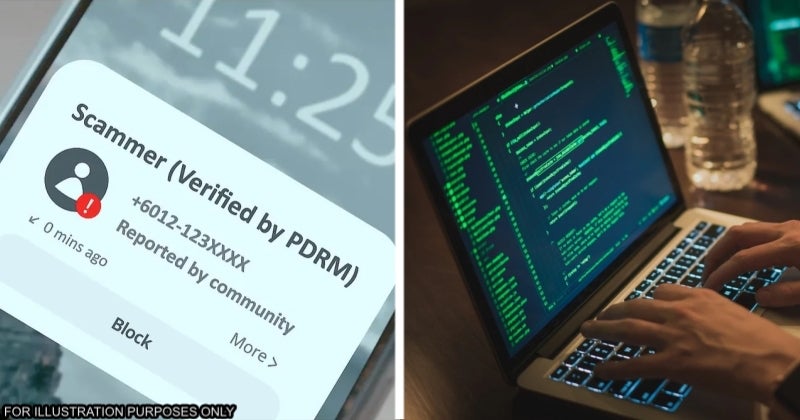A recent study by a global TrustTech company paints a rather distressing picture of personal data breaches in our country as get this, Malaysia ranks first in the number of phone numbers breached!
According to the Gogolook 2022 Annual Fraud Report, over 73% of cell phone numbers in our country or personal information of approximately 21.9 million people were leaked or sold to scammers last year.
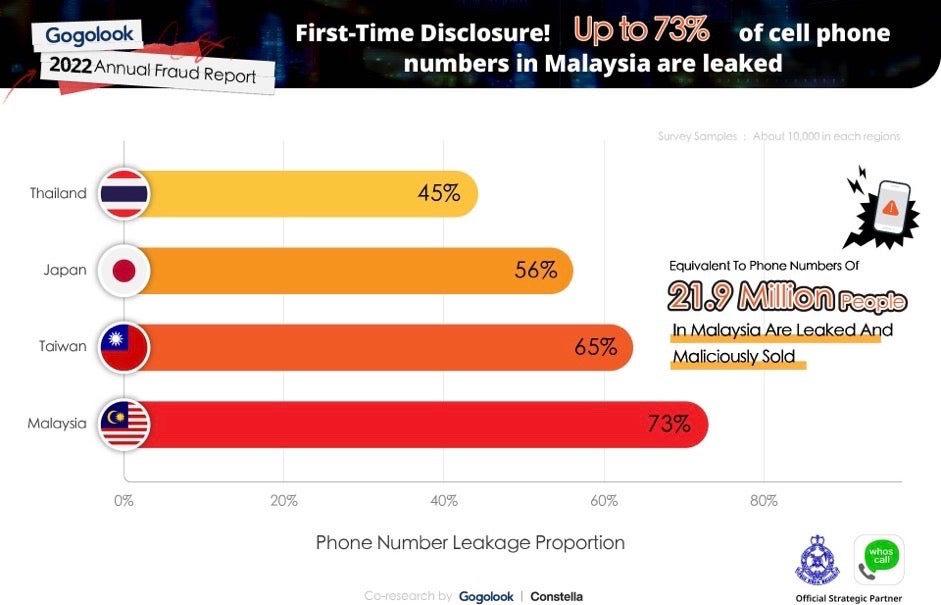
The Gogolook study, made in collaboration with international digital risk protection service provider Constella Intelligence, looked into private information leakage and upstream operation in the scam industry chains across Thailand, Taiwan, Korea, Japan and Malaysia.
Besides that, the report also stated that the top private information leaks were login passwords and names, followed by address, country, date of birth and email leaks.
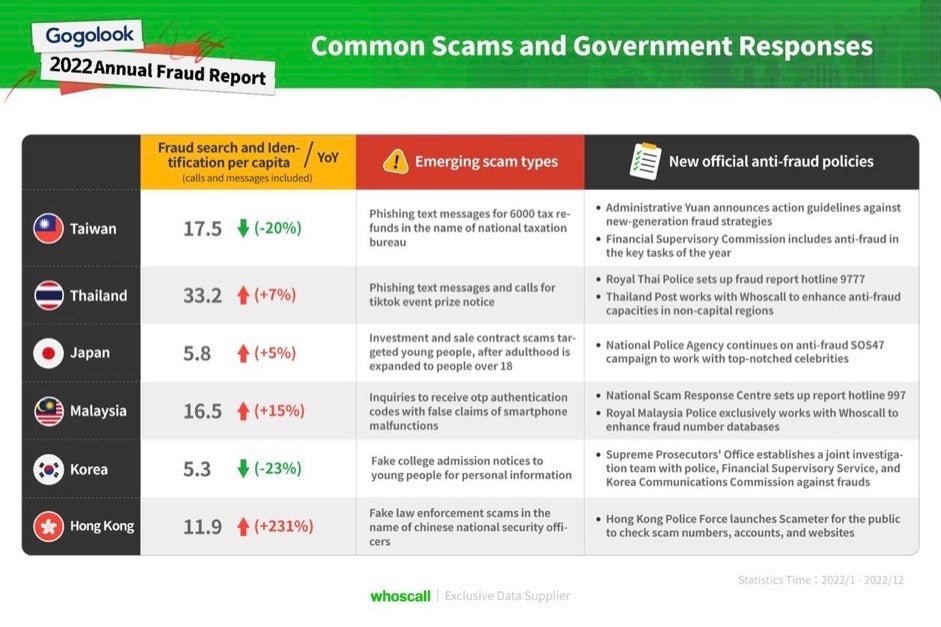
The study further revealed that these leaked data may lead to stolen online banking or social network accounts as scammers can easily initiate phone and message attacks when they get access to names, phone numbers, and even payment and shopping records.
Gogolook elaborated that when such private information is leaked, people may receive “unsolicited packages with payment requests on arrival” and more often than not, would lead to fraud or scam cases.
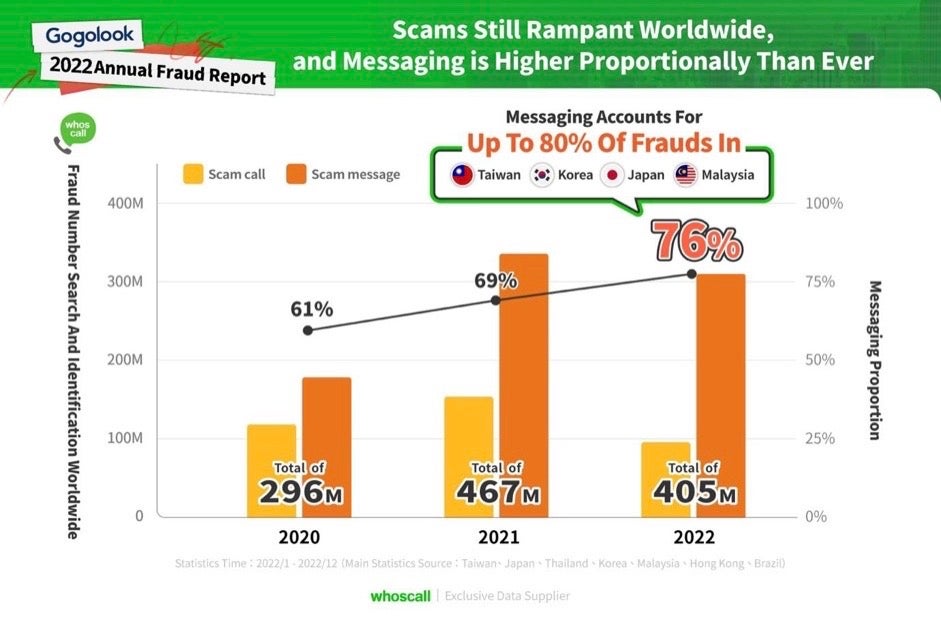
Hence, the public is advised to be aware of the current modus operandi of scammers from time to time. The latest emerging scam type in Malaysia is enquiring users to receive OTP authentication codes, which may be tough to differentiate.
It was also revealed that Whoscall, an anti-fraud application powered by Gogolook identified over 405.4 million scam calls and messages in 2022.
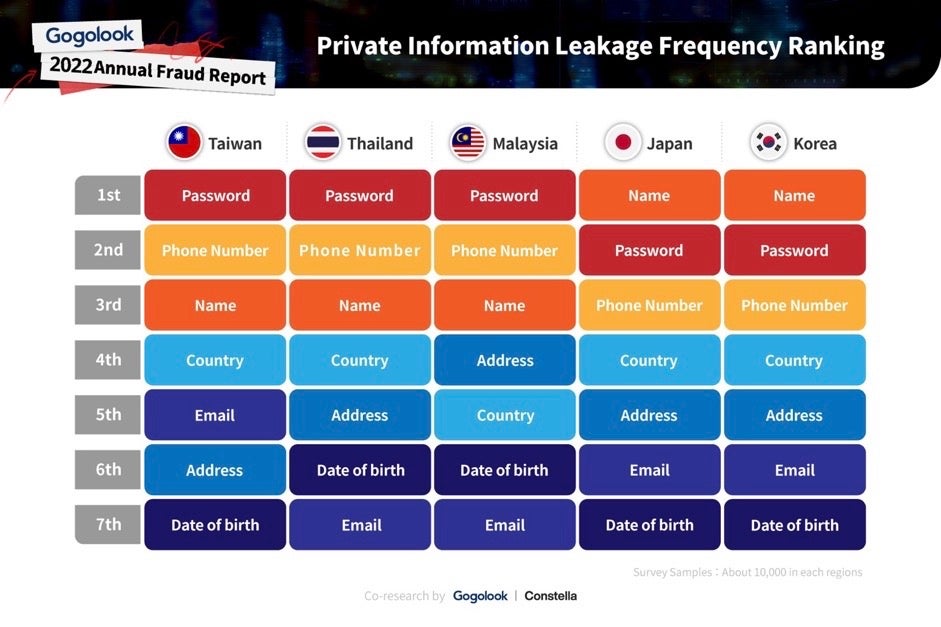
The results showed that scammers prioritise text messages for high penetration rates due to its low costs feature which contributed to 76% of messages being used as the ‘first contact’ in fraud cases.
Recently, the Royal Malaysia Police (PDRM) collaborated with Whoscall to enhance the fraud number database, essentially making it the most updated and reliable caller ID application for Malaysians.
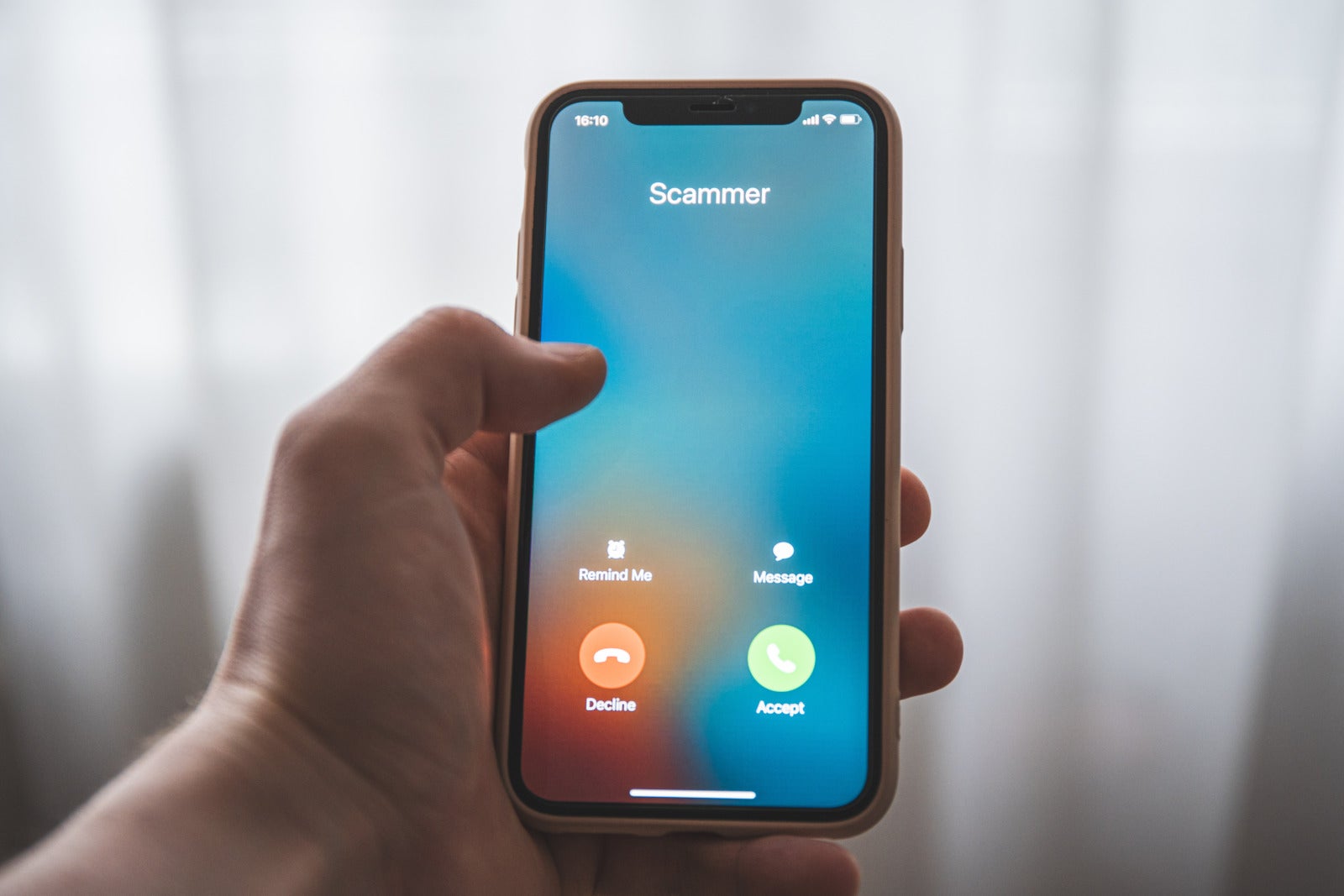
With the frequency of scams in Malaysia nowadays, it is best to stay vigilant online and always do proper research before believing a message or call that you received.
So, what do you guys think of this study’s findings? Have you received any unsolicited calls or messages from dubious parties? Share your experiences with us in the comments!
Also read: M’sian Fresh Grad Loses Savings After Getting Scammed by Person Posing as HR from Legitimate Company

